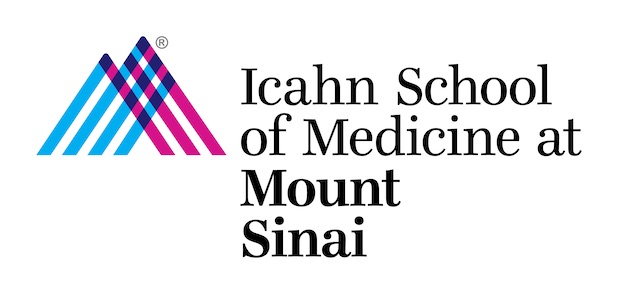Treatment Strategies for Opioid Use Disorder
What You’ll Learn
After completing this course, learners should be able to identify and manage opioid use disorder (OUD) in patients with serious illness, including the use of medication for OUD with buprenorphine. Learners will be able to define approaches for treating pain in people with OUD, and list the considerations and steps for opioid tapering and de-prescribing.
Learning outcomes for this course include:
- State 3 assessment questions to identify OUD
- Define a step wise approach for treating pain in those with OUD
- Describe the role of buprenorphine in patients with OUD
- Discuss the role of voluntary taper in OUD
What You’ll Earn
Only CAPC members who are logged in can earn the following free Continuing Education Credits:
- 1.00 AMA PRA Category 1 Credit(s)™
- Case Management: 1.00 CE
- Nursing: 1.00 CNE, 0.50 Pharmacotherapy
- Social Work: 1.00 CE (NYSED)
Social work credits are approved by the New York State Education Department. Social workers licensed outside of New York should contact their regulatory board to determine course approval for continuing education credits.
To take this course, log in. Or, check here to see if your organization is a member.
LoginTake the course
Take the post-test
Complete evaluation
Download your certificate
Tools & Resources
Key Takeaways for Course 4 of the Chronic Pain Strategies for Patients with Serious Illness Unit.
Course citations and additional resources.
Centers for Disease Control and Prevention's list of basic opioid terms.
These resources for treating OUD and chronic pain were developed for health professionals, patients, family members and significant others of patients, and the general community to learn more about the evidence-based treatment of OUD and the treatment of chronic pain.
U.S. Department of Health and Human Services guidance for clinicians on patient-centered reduction or discontinuation of long-term opioid therapy.
An overview of buprenorphine from the Center for Addiction Services and Treatment.
A two-part blog post that explores how buprenorphine can help people living with serious illness – especially those with pain and opioid use challenges.
Final post of a two-part blog series, which covers how to prescribe buprenorphine, considerations, and potential barriers for use.
Obtain the DEA X waiver for buprenorphine prescribing for up to 30 patients.
Course Directors
Accreditations and Disclosures
Physicians
The Icahn School of Medicine at Mount Sinai is accredited by the Accreditation Council for Continuing Medical Education (ACCME) to provide continuing medical education for physicians.
Icahn School of Medicine at Mount Sinai designates this enduring material for a maximum of 1.0 AMA PRA Category 1 Credit™. Physicians should claim only the credit commensurate with the extent of their participation in the activity.
CME Released: 2/15/2024; Valid for credit through 2/15/2026
Estimated Time of Completion for CME: 60 minutes
ABIM MOC Recognition Statement
Successful completion of this CME activity, which includes participation in the evaluation component, enables the participant to earn 1.0 MOC credit in the American Board of Internal Medicine's (ABIM) Maintenance of Certification (MOC) program. Participants will earn MOC credits equivalent to the amount of CME credits claimed for this activity. It is the CME activity provider's responsibility to submit participant completion information to ACCME for the purpose of granting ABIM MOC credit.
Physician Assistants
The American Academy of Physician Assistants (AAPA) accepts credit from organizations accredited by the ACCME. Icahn School of Medicine at Mount Sinai designates this enduring material with 1.0 AMA PRA Category 1 Credit™ as specified, which can be applied to the continuing education of Physician Assistants. Physician Assistants should claim only the credit commensurate with the extent of their participation in the activity.
Nurses (Registered Nurses, Advanced Practice Registered Nurses, Licensed Nurses)
This nursing continuing professional development activity was approved by Connecticut Nurses' Association, an accredited approver by the American Nurses Credentialing Center's Commission on Accreditation.
CNE Released: 1/11/2024; Valid for credit through 1/11/2026
Estimated Time of Completion / CNE Contact Hours: 60 minutes / Contact Hours 1.0
This course offers 0.50 Pharmacotherapeutic Contact Hours for Advanced Practice Registered Nurses as required for maintenance of national certification by the American Nurses Credentialing Center (ANCC) and the American Association of Nurse Practitioners (AANP) for nurse practitioners and clinical nurse specialists.
Social Workers
This program is approved by the National Association of Social Workers (Approval # 886437049-3790) for 1.0 continuing education contact hours effective 12/11/2023 - 12/31/2024.
Center to Advance Palliative Care SW CPE #0257 is recognized by the New York State Education Department's Board for Social Work as an approved provider of continuing education for licensed social workers effective 7/31/2024 - 7/31/2027. This program has been approved for 1.0 continuing education contact hours.
Certified Case Managers
This program is approved by The Commision for Case Manager Certification (Approval # 230004279) to provide 1.0 continuing education credits to CCM board-certified case managers. Effective 1/15/2024 - 1/15/2025.
Verification of Attendance (VOA)
All users that are not eligible for continuing education will receive a Verification of Attendance certificate upon completion of the course.
Faculty Disclosure Policy
It is the policy of Icahn School of Medicine at Mount Sinai (ISMMS) to ensure objectivity, balance, independence, transparency, and scientific rigor in all CME-accredited educational activities. All faculty participating in the planning or implementation of an activity accredited by ISMMS are expected to disclose all of their financial relationships with ineligible companies existing within the prior 24 months. All relevant financial relationships have been mitigated and disclosed to learners before the activity takes place. Presenters must also make a meaningful disclosure to the audience of their discussion of unlabeled or unapproved drugs or devices. This information will be available as part of the course material.
None of the individuals in control of content have relevant financial relationships to disclose. All relevant financial relationships have been mitigated.
Course Media Instructions
Software Requirements: CAPC’s online curriculum, tools and technical assistance are designed to be fully compatible through multiple platforms: computer, smartphone (iOS or Android) or tablet running the following web browsers: Google Chrome, Mozilla Firefox, Safari, and Microsoft Edge.
Content: Each course is comprised of interactive learning components (articles, tools, or supporting materials), video and audio. The learner will be expected to complete various interactive processes such as matching, simulated clinical decision-making, fill in the blanks, and highlighting content.
To successfully earn credit, participants must complete the activity online, receive a minimum score of 80% on the post-test, and complete the course evaluation. A printable certificate of completion or a continuing award document specific to the discipline will be awarded.
Target Audience: Each program is developed for chaplains/spiritual counselors, nurses, physicians, physician assistants, social workers, case managers, palliative care program leaders, and healthcare leaders (hospital, health system and community care).
Activity Description/Statement of Needs: CAPC’s online curriculum provides training in two critical areas. Technical assistance courses are designed to help palliative care program leaders address key challenges such as implementing palliative care in community health care settings. Clinical coursework provides fundamental training in pain and symptom management, communication, and other key skills needed to work with patients with serious illness.
Disclaimers: The opinions expressed in the courses are those of the authors and do not necessarily represent the views of the sponsor, the educational partner, or the supporter. Please review complete prescribing information of specific drugs or combination of drugs, including indications, contraindications, warnings, and adverse effects before administering pharmacologic therapy to patients.
Activities do not contain information on commercial products/devices that are unlabeled for use or investigational uses of products not yet approved.
Copyright Information: All rights reserved by the Center to Advance Palliative Care (CAPC). No materials may be used or reproduced in any manner whatsoever without written permission except in the case of brief quotations embodied in articles or reviews.
Peer Reviewers
Karl Bezak, MD. Clinical Assistant Professor of Medicine, Palliative Care and Medical Ethics, University of Pittsburgh (UPMC).*
Spencer Christiansen, MD. Hospice and Palliative Medicine Fellow at Icahn School of Medicine at Mount Sinai
Dara Duncan, RN. Hospice and Palliative Care Registered Nurse, Wiener Family Palliative Care Unit
Mount Sinai Hospital.
Maria Gatto MA, APRN, ACHPN, APHN-BC
Gabrielle Langmann, MD. Clinical Instructor of Medicine, Division of General Internal Medicine, Section of Palliative Care and Medical Ethics, University of Pittsburgh Medical Center; Master’s of Science in Medical Education Candidate, University of Pittsburgh.*
*indicates ABIM Peer Reviewer
Contact information: For answers to frequently asked questions about CAPC courses and CEs, read the Online Course FAQ. For all other questions, please contact support.

Provided by the Icahn School of Medicine at Mount Sinai.
Course 1 of 4
Clinical training on the biological basis of chronic pain, building patient trust, and non-pharmacological and non-opioid treatments for managing chronic pain in patients with serious illness.
Course 2 of 4
Clinical training on prescribing an opioid trial for the management of a seriously ill patient's chronic pain.
Course 3 of 4
Clinical training course on universal precautions to identify and assess opioid misuse, and prevent opioid use disorder (OUD) in patients with serious illness.


